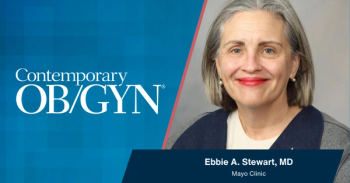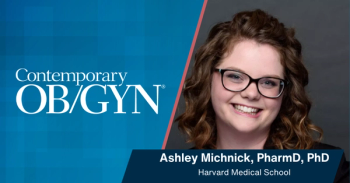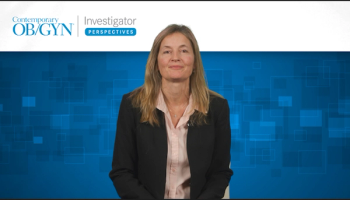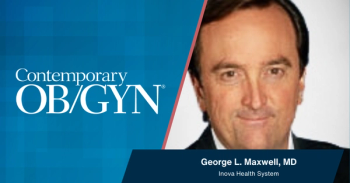
Data supporting the safety of influenza, pertussis, and COVID-19 vaccines in pregnancy remain strong, even as policy shifts raise concerns about future HPV vaccination recommendations, Kevin Ault, MD said.

Data supporting the safety of influenza, pertussis, and COVID-19 vaccines in pregnancy remain strong, even as policy shifts raise concerns about future HPV vaccination recommendations, Kevin Ault, MD said.

In a large preconception cohort, more than 40% of pregnancy planners reported very early home pregnancy testing, which was associated with higher risks of false-negative results and detection of very early pregnancy losses.

"It really is important for us to be able to explain to women the why. Why are we doing this?" said Barbara Levy, MD, in this Contemporary OB/GYN interview.

Kevin Ault, MD, of the NFID, explains the importance of data- and evidence-based guidance, such as that of ACOG, for maternal immunization recommendations.

“We do know that women, their intention to breastfeed is a very strong predictor of them successfully breastfeeding. Those conversations in pregnancy are very important," said Fionnuala McAuliffe, MD, in this Contemporary OB/GYN interview.

The scope of the marketplace contrasted sharply with the available evidence.

Winok Lapidaire, PhD, explains how early postpartum physician-guided blood pressure self-management after hypertensive pregnancy was associated with higher white matter volumes.

A central focus is understanding and reducing patient-level barriers to timely, values-congruent fibroid care

Longer lifetime breastfeeding was associated with lower odds of depression and anxiety up to 10 years later in a prospective cohort of midlife women.

Self-collected hrHPV testing, now supported in HRSA’s cervical cancer screening guidelines, could dramatically expand screening according to Barbara Levy, MD.

Early postpartum blood pressure self-monitoring with physician-guided medication adjustment was linked to sustained reductions in blood pressure among women with hypertensive pregnancies.

Outdated FDA labeling, insurance uncertainty, and lack of clinic workflows are some barriers Jennifer Karlin, MD, PhD, and colleagues found for user-administered injectable contraceptives.

Updated HRSA cervical cancer screening guidelines prioritize hrHPV testing and patient self-collection, a shift that experts say reflects long-standing evidence.

Provider assumptions about patient capability remain a major barrier to prescribing self-administered DMPA-SC, despite strong patient-reported benefits and supportive national survey data.

Jennifer Karlin, MD, PhD, explains how COVID-19 increased awareness of self-administered DMPA, but systemic and provider-level barriers still limit access.

Ashley Michnick explained that early findings support RSVpreF pregnancy safety, while emphasizing the need for continued monitoring.

Gestational diabetes rates have increased by 36% in the United States since 2016, with consistent rises across racial and ethnic groups.

A study found that opioid use during pregnancy is associated with significantly increased maternal complications and adverse neonatal outcomes.

New evidence shows that quadrivalent HPV vaccination is associated with a significant reduction in vulvar and vaginal lesion risk.

New research shows COVID-19 vaccination before or during pregnancy significantly lowers the risk of severe maternal illness and reduces rates of preterm birth.

Research suggests mesenchymal stem cell therapy may improve sexual quality of life and overall health span in older women.

Advances including FDA-approved neurokinin receptor antagonists are reshaping vasomotor symptom management by providing effective, nonhormonal options for menopausal women.

Michelle Manzo, MPH, CMPP, outlines key challenges and care strategies for women with epilepsy across pregnancy and parenthood.

Each panelist offers key takeaways emphasizing patient-centered care, shared decision-making, and optimism for advancing menopause treatment.

Conversation turns to evolving clinical algorithms, combination strategies, and expected next-generation therapies.

Fiona C. Baker, PhD, summarizes the most clinically relevant takeaways from NIRVANA and explores how these findings may shape future treatment decisions and guideline conversations.

Fiona C. Baker, PhD, discusses the interconnected nature of VMS and sleep disturbances, stressing why treating both together—and achieving rapid symptom relief—is key for patient satisfaction.

Edward Hook, MD, discusses the FDA approval of oral zoliflodacin and its role in expanding treatment options for uncomplicated gonorrhea amid rising resistance.

George L. Maxwell, MD, outlines the SUNFLOWER phase 3 trial assessing Mirena vs oral progestin for treating nonatypical endometrial hyperplasia.

Melanie Barrett, MD, highlights brexanolone’s ability to quickly and durably reduce depressive and anxiety symptoms in postpartum women.